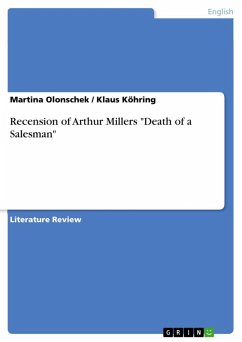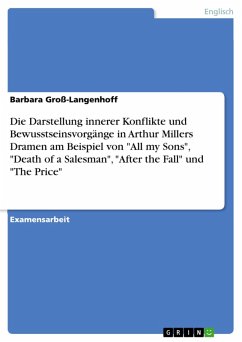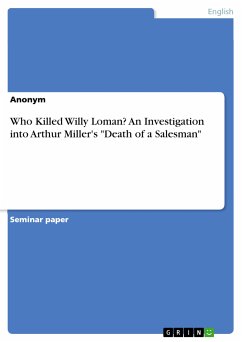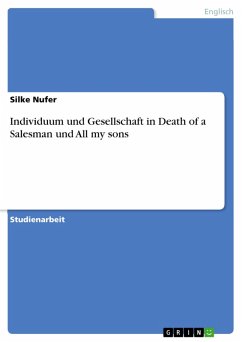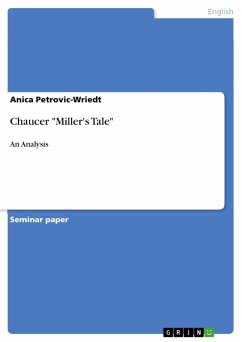Literature Review from the year 2006 in the subject English Language and Literature Studies - Literature, grade: 2,0, Carl von Ossietzky University of Oldenburg, course: Einführung in die englische Literatur, language: English, abstract: Analysis of the passage in the text (Penguin: page 25, “Willy: Bernard is not well liked, is he?” – page 27, “Willy: “What do we owe?”) This passage from the first act of Arthur Miller’s drama “Death of a Salesman” displays one of the numerous flashbacks of Willy Loman, who represents the main character and moreover a complex round character. With this reflection of the past the reader or spectator is able to share in Willy’s and his former family life; a family life that is harmonious, easy, joyful or simply all in all perfect. For Willy this ideal world is very important as ideals are in general. He places special value on a good image, which can be seen in the very first question of the passage “Bernard is not well liked, is he?” , which he addresses to his sons Biff and Happy. With the simile “you’re both built like Adonoises”1, which Willy is thankful for and moreover very proud of, and the statement that his sons “are going to be five times ahead of [Bernard]”1 because of their appearance, it becomes clear that he is of the opinion that attractiveness which results in “personal interest”1 and popularity is the only way to become big in business – which is pretty unrealistic already because good grades are necessary to enrol in college, and contents taught in college are in the majority of cases necessary to become big in business. It is furthermore visible that Willy builds his hopes on Biff and Happy. For them he is a role model and he seems really confident of being a good one: “Be liked and you will never want. You take me, for instance. I never have to wait in line […].” He is also sure of the fact that he is well known and welcome everywhere he goes which is indicated by the following statement “’Willy Loman is here!’ That’s all they have to know […].” Another pleasure in Willy’s life is to share his work with his sons by telling them stories about it. He then tends to exaggerate, as it is seen in his self praise-hyperbole “knocked ’em cold in Providence, slaughtered ’em in Boston.”3, in order to bring his business success near to them.
